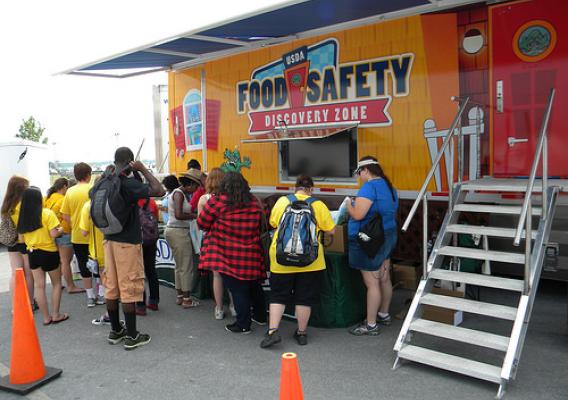Lou’s Gourmet Sausage, a small family business run by the Vinciguerra brothers of Cleveland, Ohio, takes sausage seriously. For over fifty years, the company has been supplying Cleveland restaurants and grocery stores with Sicilian, Andouille, Cajun, mild and hot chicken and veal sausages. But despite strong demand for its products, it took a USDA program to make Lou’s sausage available outside Ohio.
In 2012, Ohio was the first state to join USDA’s Cooperative Interstate Shipment program (CIS). The program, authorized under the 2008 Farm Bill, allows inspected and approved small state-inspected meat processors, like Lou's Gourmet Sausage, to bear an official USDA Mark of Inspection and ship meat and poultry across state lines. Previously, only products from federally inspected plants could be sold in other states. To participate in the program, state certified plants like Lou's Sausage work with USDA's Food Safety Inspection Service (FSIS) to integrate their systems to meet federal inspection standards. Once inspected and approved for compliance, these smaller plants can ship across state lines and are poised for bigger market opportunities.

